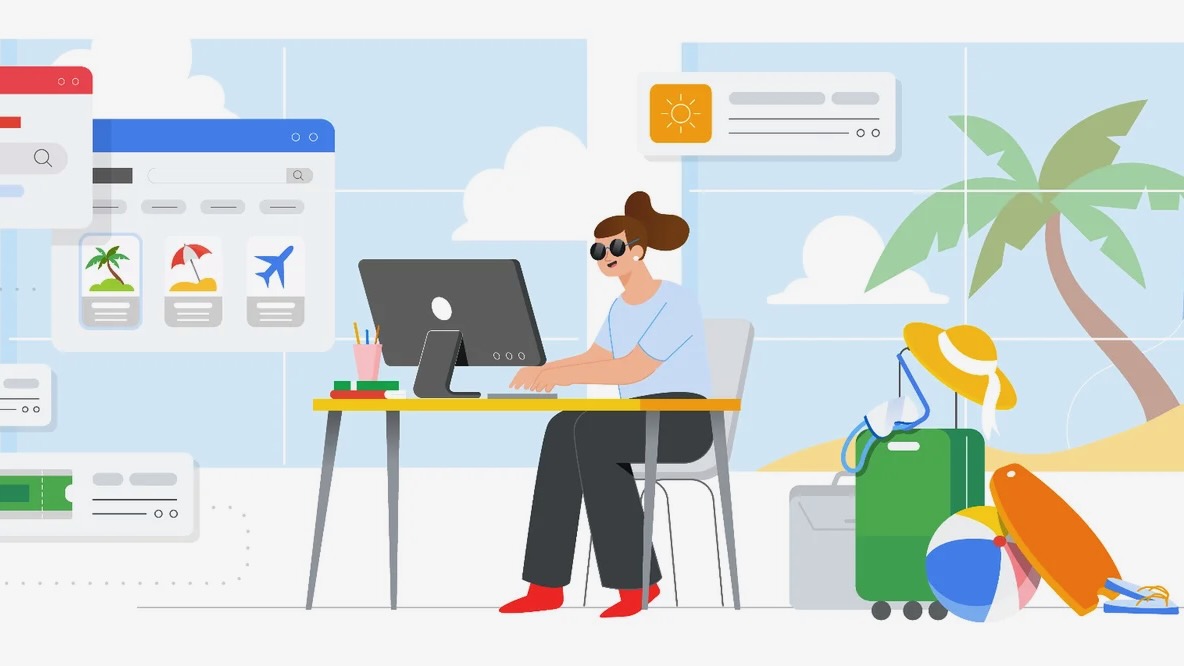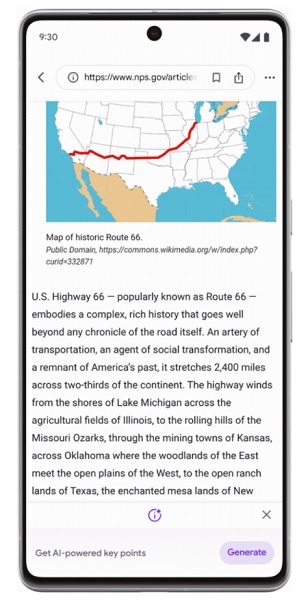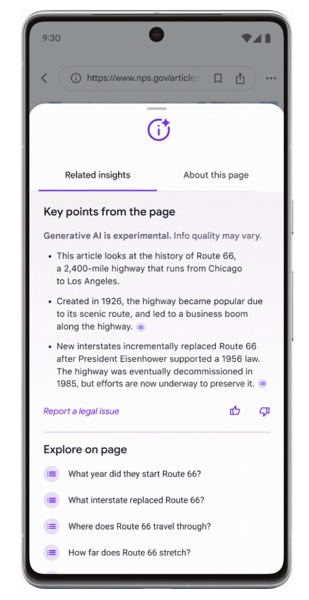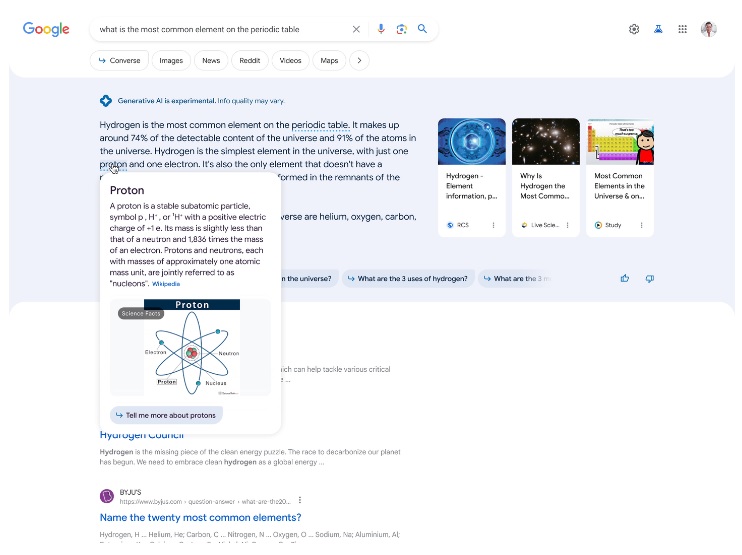
What you need to know
- Google is rolling out "SGE while browsing" for Labs participants to gain quick bits of important information from lengthy articles.
- The "Explore on page" lets interested parties gain a more in-depth understanding of the article.
- Google's SGE gains definitions for words found while searching complex topics like science and economics.
Google is continuing to refine its search generative experience (SGE) within Search Labs by rolling out a feature to deliver key bits of information to users.
According to a Keyword post, Google is launching "SGE while browsing" today in Search for enrolled Labs participants. The company states that understanding a topic often requires users to read through "long or complex web pages."
"SGE while browsing" will deliver "key points" that an article discusses without requiring a lengthy read.
This feature, though in testing, doesn't appear to work on every web page users can discover. However, on the ones that do, users can generate a list of the aforementioned key points along with links that'll take you to the point of the article where that piece of information is talked about.


Furthermore, Google states it's included a "Explore on page" option for users interested in learning more can find questions answered by the article.
Users will not be able to bypass certain publications' paywall restrictions on articles with this tool. Google states it will keep the power to decide whether or not an article is paywalled or free to the public in the hands of the publisher.
SGE while browsing is available today for Search Labs in the Google app on Android phones and iOS devices. Desktop Chrome users can expect it to arrive "in the days ahead."
Aside from Google's new browsing efforts, the company is rolling out other SGE improvements, such as an AI overview for understanding coding. Google states, beginning today, it will bolster its SGE's capabilities to help users better understand and debug their code.
Moreover, SGE will display in-line definitions for those searching topics involving science, economics, history, and more. The post states users can hover over underlined words to see a word's definition, diagrams, and images related to it, as well.
Clicking or tapping on "tell me more" will prompt the AI bot to expand on that word.

It's been only two weeks since Google pushed a new update for SGE, which brought about source linking. Users enrolled in Labs gained in-line source linking for topics where the AI software received the information it was displaying. It's a method users may find agreeable since they can do some fact-checking on the bot to ensure the information is accurate and, above all else, real.
Google has stated multiple times that it wants to create "responsible" AI, but we're no strangers to the fact that software like this can hallucinate aspects of information. The more ways we have to verify what we're searching for, the better.







